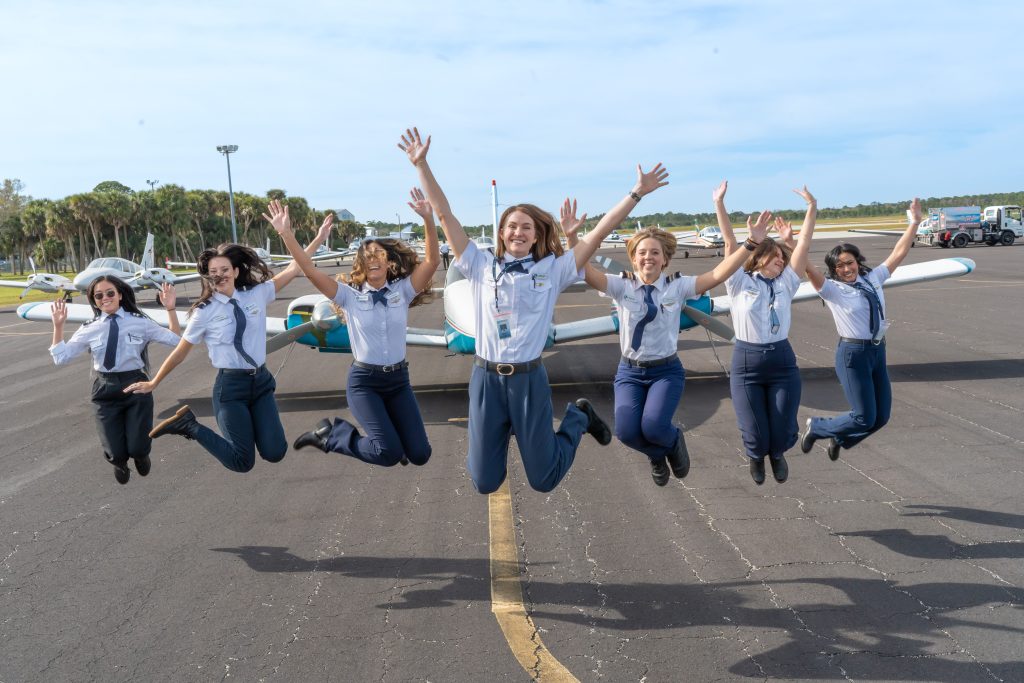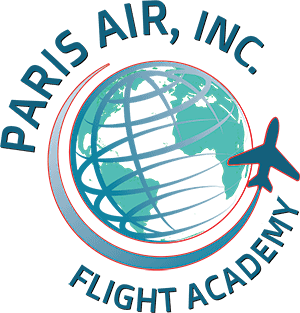The Hidden Side of Flight Training
Becoming a pilot is one of the most exciting and rewarding journeys you can take—but it’s not without turbulence.
The early mornings, unpredictable weather delays, and long study hours can be physically and mentally exhausting. Many student pilots find themselves battling stress, fatigue, or self-doubt, wondering if they’re truly cut out for the cockpit. Even professional pilots face unique pressures—tight schedules, long stretches away from home, and the constant responsibility of keeping passengers safe.
It’s easy to focus on the checklist, the next maneuver, or the next goal—and forget about your pilot mental health and emotional well-being. But in aviation, mindset matters just as much as skillset.
That’s where gratitude comes in.
Far more than a feel-good idea, gratitude is a proven psychological tool that can strengthen your focus, improve your performance, and protect your mental health—both in and out of the cockpit.
The Psychology of Gratitude
Gratitude isn’t just saying “thank you.” It’s a perspective—a way of viewing life and learning through appreciation rather than frustration.
According to research from Harvard Health and the University of California, gratitude activates the brain’s “reward center,” releasing dopamine and serotonin—the same neurotransmitters linked to happiness and motivation. People who practice gratitude regularly report lower levels of anxiety, better sleep, and higher levels of resilience.
In flight training, resilience is everything.
A pilot’s path is full of ups and downs: the first solo that feels incredible, followed by the tough crosswind landings that test your patience. Gratitude helps reframe those experiences—not as failures, but as essential steps forward.
When you start looking at each lesson as progress, not perfection, the training process becomes less about chasing milestones and more about appreciating growth.
Instead of saying, “I can’t believe I messed up that approach,” the grateful pilot might think, “I learned something valuable today that will make me a better aviator tomorrow.”
That shift in mindset can make all the difference between burnout and breakthrough.
Why Pilot Mental Health Matters
Aviation is one of the few careers where both physical and mental fitness are equally important. Every decision in the cockpit demands focus, calmness, and clarity—and even small lapses in those areas can lead to big consequences.
Yet pilot mental health in hasn’t always received the attention it deserves. Aviators often feel pressure to appear composed and capable at all times, which can make it hard to talk openly about stress, fatigue, or anxiety.
The truth is, flight training and aviation careers can take a toll.
- Irregular sleep schedules disrupt circadian rhythms and focus.
- Time away from home can strain relationships and emotional balance.
- High standards and performance expectations create internal pressure.
The FAA and flight schools nationwide have started emphasizing mental wellness as part of a pilot’s overall safety and performance. A healthy pilot isn’t just one who passes the medical exam—it’s one who manages stress effectively, rests well, and maintains perspective through every challenge.
Mental fitness helps pilots make sound decisions, communicate effectively, and maintain calm under pressure—all essential traits for flight safety.
And gratitude plays a surprisingly powerful role in that.

How Gratitude Strengthens Pilot Mental Health Performance
So, how exactly does being thankful translate into becoming a better pilot?
1. Improved Focus and Presence
Gratitude keeps you grounded—mentally and emotionally. When you appreciate where you are in your training journey, it’s easier to stay focused on the present task instead of worrying about the next one.
A pilot who flies with presence is more attuned to their aircraft, their surroundings, and their decision-making process. Gratitude promotes that kind of mindfulness.
2. Emotional Regulation Under Pressure
Every pilot knows that conditions can change fast. Gratitude trains your brain to adapt with patience and composure. When things don’t go as planned—a delayed checkride, a maintenance issue, a rough landing—gratitude helps you maintain perspective rather than frustration.
By acknowledging what’s still going right (“I’m safe, I’m learning, I have another chance tomorrow”), you prevent stress from clouding your judgment.
3. Stronger Community and Communication
Flying may seem solitary at times, but it’s built on teamwork. Instructors, dispatchers, maintenance staff, and ATC all play critical roles. Expressing appreciation toward others strengthens relationships and trust across the aviation community.
A simple “thank you” to your instructor after a tough lesson, or to ATC after a smooth vectoring sequence, goes a long way. It builds connection—and connection builds safety.
4. Motivation and Confidence
When you recognize how far you’ve come, it fuels confidence to keep going. Gratitude reminds you that progress has already been made—and that every challenge is proof of your dedication, not a reflection of inadequacy.
That mental boost can be especially valuable in the demanding stages of flight training.
Practical Ways to Practice Gratitude as a Pilot
Here are a few ways pilots and students can bring more gratitude into their daily routines:
✍️ 1. Post-Flight Reflection Journal
After each flight, jot down:
- One thing that went well
- One thing you learned
- One person who helped you improve
This quick habit builds awareness of progress and creates a record of growth you can look back on later.
🌤️ 2. Pre-Flight Mindfulness
Before starting the engine, take a few deep breaths and look around. Feel the weight of the controls, the smell of avgas, the hum of the ramp—it’s a moment to appreciate the privilege of flying.
That small pause can center your focus and reduce pre-flight anxiety.
🛠️ 3. Gratitude for the Team
Remember, flying is a team effort. Say thank you to your instructor, maintenance staff, classmates, or the person at dispatch. A little acknowledgment goes a long way in keeping morale high and relationships positive.
⛈️ 4. Reframe Challenges
Weather delay? Maintenance snag? Instead of frustration, see it as an opportunity: to study, rest, or connect with peers. Gratitude transforms setbacks into productive pauses.
🤝 5. Community Connection
Join study groups or local pilot meetups, and share what you’re thankful for in your journey. Gratitude is contagious—it encourages others to reflect and connect more deeply, too.
🧭 6. The “Appreciation Approach”
Try incorporating thankfulness into your learning mindset. When your instructor gives feedback, respond with appreciation rather than frustration. This openness makes you more coachable and resilient.
Building a Resilient Mindset
Gratitude doesn’t mean ignoring challenges—it means facing them with perspective.
When a student pilot hits a plateau, gratitude reminds them that frustration is part of growth. When a commercial pilot feels exhausted, gratitude refocuses them on the purpose behind the work.
Building this kind of mindset requires consistency. Just like logging hours in the air, mental training takes repetition. But over time, gratitude becomes second nature—a steadying force even in the roughest skies.
And the benefits go beyond flying. Pilots who practice gratitude often report better relationships, improved concentration, and higher satisfaction in their careers and personal lives.
It’s a reminder that flying isn’t just about controlling an aircraft—it’s about mastering yourself.
A Culture of Gratitude at Paris Air
At Paris Air, we see gratitude in action every day.
- Students thanking instructors after milestone flights.
- Instructors celebrating each student’s progress.
- Maintenance and operations teams keeping aircraft safe and ready to fly.
A culture of appreciation keeps our community connected and motivated, reminding everyone that we’re part of something bigger than ourselves.
As we enter the season of Thanksgiving, it’s a perfect time to reflect not only on what we’ve achieved, but on who helped us get here.
Maybe it’s your instructor who believed in you, your classmate who helped quiz you for your written exam, or your family who supports your aviation dream. Take a moment to thank them—it just might lift their spirits as much as it lifts yours.
Turning Gratitude into Greatness
Flying teaches us more than just navigation, aerodynamics, and checklists. It teaches patience, humility, and awareness—qualities that gratitude naturally strengthens.
A grateful pilot doesn’t see setbacks as failures; they see them as fuel for improvement. They don’t take smooth flights for granted, and they don’t forget the people who help make every journey possible.
So as you chase new ratings, log more hours, and set your sights higher, remember: the key to greatness in aviation isn’t just skill—it’s gratitude.
Take time this month to slow down, reflect, and thank the people and moments that make your flight path meaningful. Because when gratitude becomes part of your mindset, the sky isn’t the limit—it’s home.
Looking to join a healthy community culture of like-minded aviation enthusiasts? Stop in and tour our school. Contact us today to schedule your Discovery Flight and Facility Tour.

